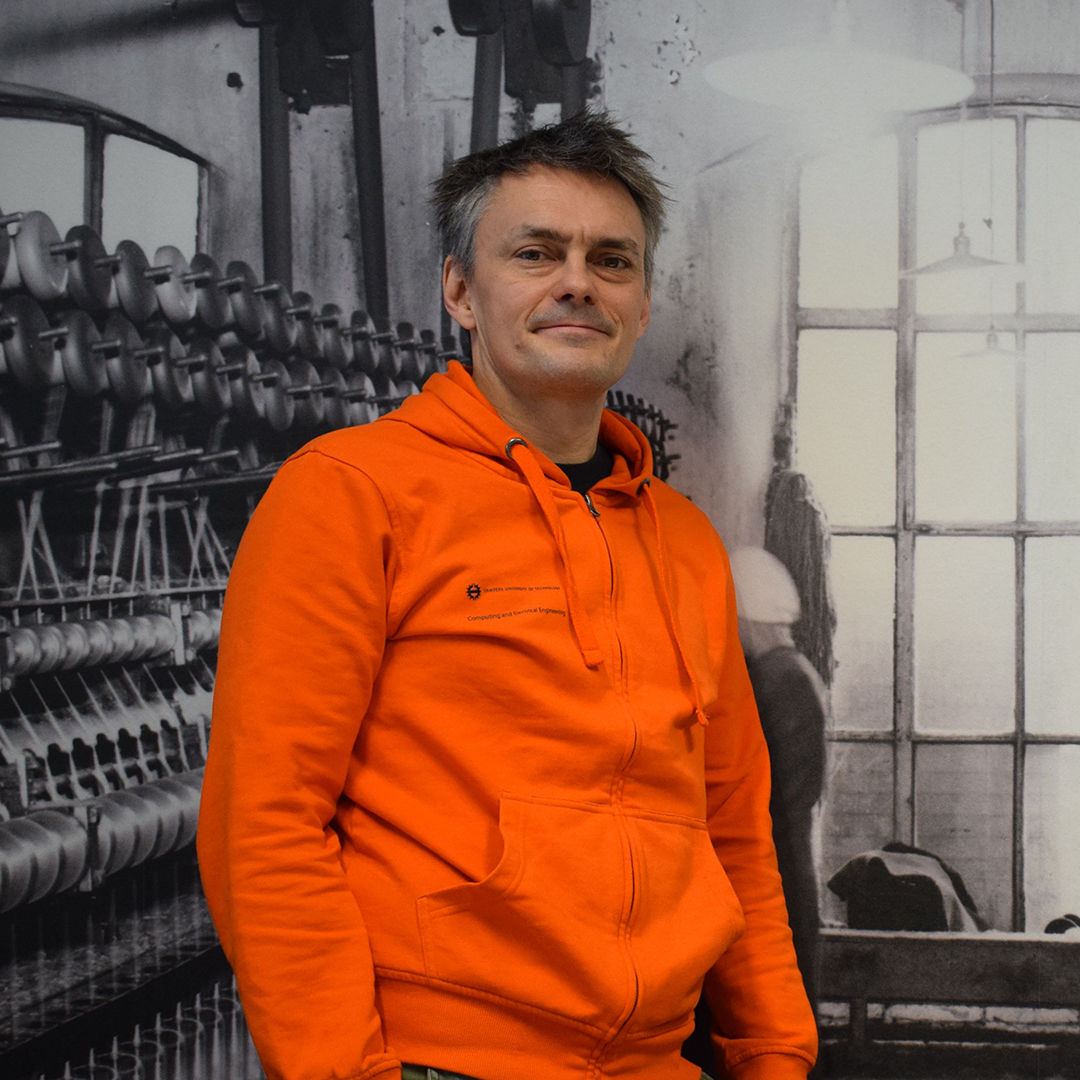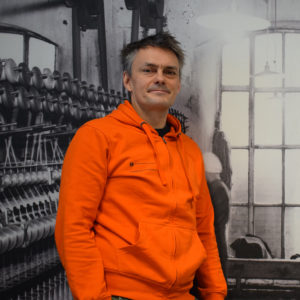Joni Kämäräinen is an Associate Professor at the Computing Sciences unit of Tampere University. He and his team are making everyday life easier for all of us and industrial processes more efficient.

What are the main focus areas of your research?
– My main interests are computer vision, image processing, machine learning and pattern recognition; anything that has to do with images and especially if it involves robotics.
Tell us about your team at Tampere University (formerly Tampere University of Technology).
– I lead the Vision Group that is an international, hard-working and ambitious bunch of people. The team investigates and develops novel approaches and algorithms to make machines, robots, devices and systems to process and understand visual information (2D and 3D images and video).
– If someone says something is hard or impossible to do, we are very much willing to try. That is the spirit.
What are some of the challenges you are trying to solve?
– For example, a domestic robot needs an ability to recognise a lot of different objects before it can clean the house, pick up dirty clothes and put them into a washing machine, dishes into a dishwasher and so on. A home is a really challenging, changing environment for object detection. Industry, on the other hand, is a more controlled environment, but there the rules, details and tolerances are usually extremely precise.
How is your work going to change the world?
– It’ll make everyday life easier and industrial processes more efficient. When robots are capable of dealing with routine tasks, us humans can spend more time with other people, in leisure activities, learning new things, solving problems that machines can’t…
– Population ageing is generating huge needs for our research. Think about an elderly person living alone – a robot might provide 24/7 assistance in small tasks, monitor the persons condition and also learn to act like a companion. This doesn’t mean human carers wouldn’t be needed, they could just concentrate more on social interaction.
Examples of your favourite cutting edge projects or innovations?
– We’ve innovated some excellent new ways for image processing with Intel and Huawei. With NOMO Technologies we have developed human body measurement techniques for 3D body modeling, and they are top-notch.
How about the business–academia cooperation in Tampere?
– Tampere has such an easy atmosphere for collaboration. Companies won’t hesitate to contact the university when they need us. Large businesses are especially active, SMEs may need some encouragement, but we have a very good record of cooperation with companies of all sizes. It is also a pleasure to notice that bigger companies are eager to involve SMEs in joint research projects.
– From our point of view cooperation with companies is a treasure trove of real-life research problems.
From the beginning of 2019, a new Tampere University was established. Your thoughts on that?
– The second largest university in Finland was created when Tampere University of Technology and the University of Tampere merged. Our team aims to develop technology that serves human needs and will be widely accepted. I think the new multidisciplinary university could be a very good support for these aspirations.
A little more about you…
– When I was young, I wanted to become a film director, but decided to study a little bit of computer science as well, and ended up as a machine vision scientist. Not bad.
– I did my post-doc in the Centre for Vision, Speech and Signal Processing, University of Surrey. At that time I figured the academic world is the best choice for me. Just like an artist, a scientist may accomplish something meaningful and make one’s mark…
Why Tampere?
– I was selected to the current tenure-track position in 2012, and I like the urban life here in Tampere. So does my family. For some reason, Tampere seems to induce remarkably positive vibes that make this a city of the future.
What is the fondest memory in your career so far?
– The time I spent in Guilford, Surrey, was nice for both work and private life. Our first son was born, I was a young researcher with a strong faith and optimism towards the future.
– Also my time in Tampere is outstanding from the professional point of view. Thanks to my amazing colleagues, I can hardly wait to get to work every day.
How do you see the future?
– If we think about imaging in Tampere, for all I’ve seen I can just say that we have endless opportunities, and that we are moving towards a brighter future all the time.
Author: Päivi Stenroos

Associate Professor at the Computing Sciences unit of Tampere University